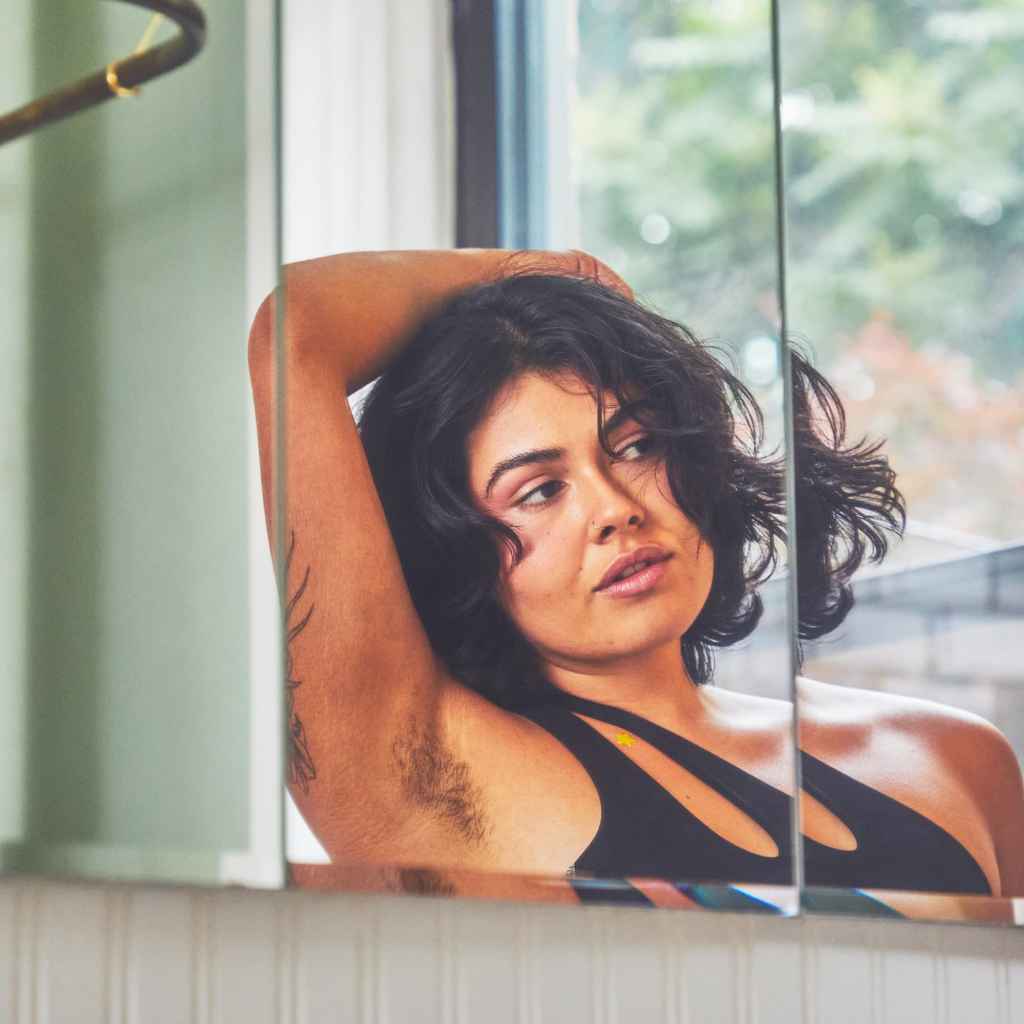Having body hair is completely natural, and that’s true for everyone. Yet from the start of puberty, young women are conditioned by peers, family, and the media (including film, advertisements, television, and pornography) to shave our armpits, legs, faces, and pubic hair. Anyone who doesn’t is often viewed by the mass public as dirty, unprofessional, or at worst, “not sexy.” But that is not true. What makes one individual attractive to another is entirely subjective, and as a queer femme person, I find body hair on women incredibly sexy.
Confidence is the sexiest attribute someone can have, but confidence is not cultivated overnight. I stopped shaving when I started college, and it took me at least two more years to acclimate to an environment where I felt comfortable with my leg and armpit hair on display because the stigma against women with visible body hair still exists.
Luckily, this is slowly changing, thanks to campaigns like Januhairy, which encourages women to grow out their body hair throughout the month to fight the stigma, and beauty brands like Billie featuring women with body hair in campaign imagery. Celebrities have also been an agent of change. For example, when Julia Roberts flaunted her armpit hair on the red carpet in 1999, it was so unheard of that she became the subject of headline-grabbing controversy. Now, when celebrities like Ashley Graham, Amandla Stenberg, and Miley Cyrus attend public events with visible body hair, people don’t make quite as much of a fuss about it.
Still, you rarely hear people call body hair “sexy,” and that goes back to subjectivity – and circumstance.
One of the biggest problems with the body hair-positivity movement is that it tends to only focus on cisgender white women. For some trans women, leaving their body hair can trigger dysphoria, and it’s not as easy for women of color to grow out their body hair as it is for white cis women. I spoke to *Bria, a Black college student from Maryland, who told me that she’s always had a tense relationship with her body hair because of this. “For most POC women, our body hair is dark, thick, and/or has curly qualities that we are unable to control,” she said. “For some non-cis women, they have facial hair – a quality that they are unable or unwilling to change. Both groups are constantly criticised for simply displaying these qualities – criticism that most cis-white women do not have to face.”
Feeling intimidated or backed into a corner based on what society considers “conventionally beautiful” (read: hairless) is the least sexy thing I can think of.
Being in circles with mostly queer women has shown me that growing up I shaved not because I wanted to, but rather to appear non-threatening to other people. This led me to change my perception of body hair on women completely. I stopped shaving not just as an act of confidence, but as an act of self-love. Now, I find it sexy on other women, because body hair to me signifies a sense of freedom and liberation.
This change in perception can be easier for women who date women because our partners are less likely to care whether we shave or not. I spoke to *Joanna, a college graduate who is queer and non-binary, and they would agree. “I can’t speak to how men view body hair, but I know that many women don’t really care, and it’s so much more comforting. As a queer femme myself, I get scared that there’s an expectation of ‘how I deal with my body hair,’ but I’ve learned it doesn’t really matter as long as I’m comfortable.”
I fully agree. While societal expectations for me to be hairless used to trigger anxiety and body dysmorphia, now being comfortable and liberated in my body is what I find sexier than anything else. Feeling intimidated or backed into a corner based on what society considers “conventionally beautiful” or “feminine” (read: hairless) is the least sexy thing I can think of.
The body hair-positive movement is not perfect. Women who publicly declare that they have stopped shaving will still receive pushback, which only highlights the importance of what they are doing. It’s high time that we normalize body hair on all women, and not just as a “trend” or a “fad,” but a mentality that sticks around for the long haul.
*Some last names have been withheld at the request of the interviewees.

